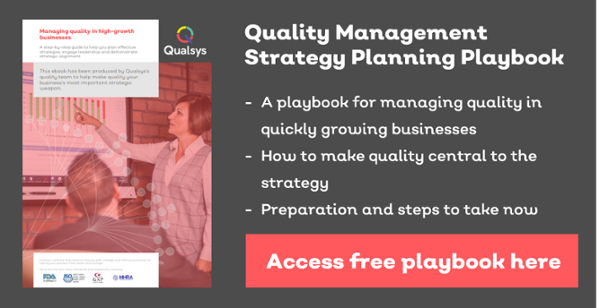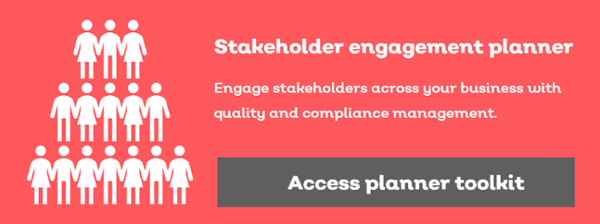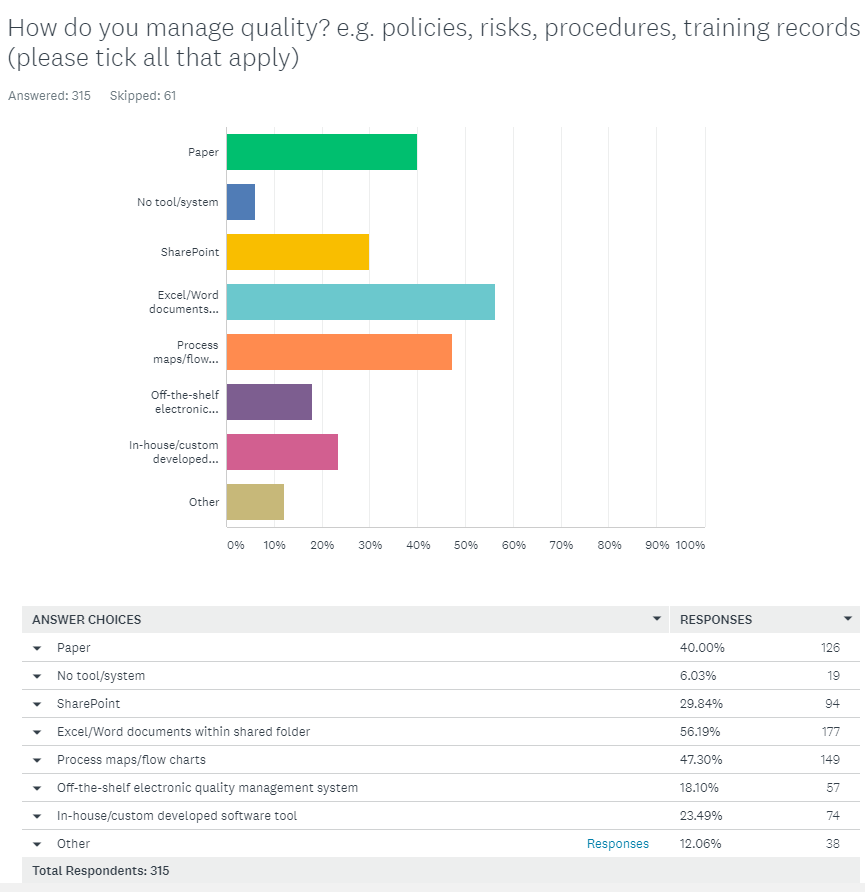Want to contribute to this article?
In rapidly growing companies, quality is often put on the back burner.
Growing companies must take the time to rethink whether their existing quality management strategy and processes will provide long-term results - otherwise they risk compromising the customer experience and losing market share to more agile rivals.

When employees are required to take on new responsibilities, are constrained for time, and creating huge amounts of information, and there is not a pre-emptive, consistent and communicative quality management system, mistakes will multiply - damaging both revenue and reputation.
The transformation required to ensure quality is at the centre of all business operations is huge. It goes much further than printing off quality manuals and hoping that all employees will take the time to read and understand their requirements.
Quality needs to be embedded into all processes, positioned at the centre of the business and needs to be an enabler for innovation. And the quality professional needs to lead this change.
Not only do quality professionals need to join conversations about strategy, they need to instigate discussion, guide and challenge all levels of the organisation to improve performance. From discussing risk and ROI in the boardroom to examining operational issues, quality professionals need to branch out well beyond the quality team. The quality professional is instrumental to the success of a growing organisation and is a key driver for change across all business areas.
The big issue
For the quality professional in mature organisations with quality well-embedded across the entire organisation, this way of working will be second nature. Perhaps they have learnt from previous experience the expensive cost of when quality fails. But for a growing market challenger or a follower, the transformation will be much tougher challenge.
In many organisations, quality teams have been established, but only as a tool to pass regulatory audits rather than as a key enabler for building the brand. Shifting this mind-set can seem like an impossible challenge but once the change has been done can be highly beneficial to all stakeholders.
Transforming the quality profession
Some quality professionals have already mastered this transition because they have realigned their role as being central to all business operations. They are looking to digital technologies to be more productive, enhance communications and are being more dynamic by asking: "What can we do to get ahead?"
For example, audits can be used to deliver competitive advantages. iEQMS Audit Manager tablet application enables auditors to attach photos, record voices and even take video clips to provide a holistic understanding of the issues at hand. Quality professionals can empower operational teams to actively recommend and suggest how the issues can be overcome.
Tied to this is making sure that as many processes are automated as possible. Using reporting tools, eliminating time consuming spreadsheets and prioritising an ever-growing workflow is essential. EQMS Dashboard Manager enables Quality professionals to understand the context of threats and weaknesses at a glance, so that quality professionals can spend more time engaging stakeholders to truly improve processes.
Whilst this transformation will not take place overnight, once the quality professional has systems required in place so that quality can be embedded into the culture of the business, the organisation will be more prepared to support rapid growth without compromising on quality.
Download the EQMS Stakeholder Engagement Planner for more information about engaging stakeholder's in quality.










Share your thoughts on this article